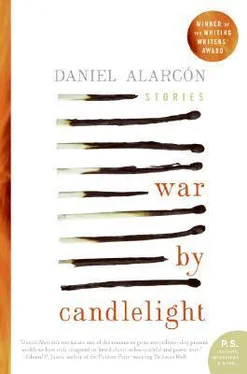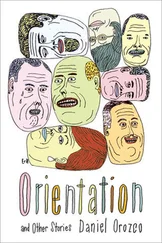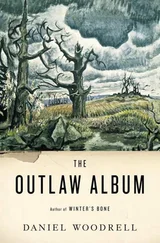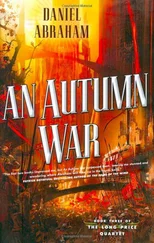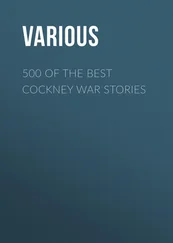Daniel Alarcon - War by Candlelight - Stories
Здесь есть возможность читать онлайн «Daniel Alarcon - War by Candlelight - Stories» весь текст электронной книги совершенно бесплатно (целиком полную версию без сокращений). В некоторых случаях можно слушать аудио, скачать через торрент в формате fb2 и присутствует краткое содержание. Год выпуска: 2006, Издательство: Harper Perennial, Жанр: Современная проза, на английском языке. Описание произведения, (предисловие) а так же отзывы посетителей доступны на портале библиотеки ЛибКат.
- Название:War by Candlelight: Stories
- Автор:
- Издательство:Harper Perennial
- Жанр:
- Год:2006
- ISBN:нет данных
- Рейтинг книги:4 / 5. Голосов: 1
-
Избранное:Добавить в избранное
- Отзывы:
-
Ваша оценка:
- 80
- 1
- 2
- 3
- 4
- 5
War by Candlelight: Stories: краткое содержание, описание и аннотация
Предлагаем к чтению аннотацию, описание, краткое содержание или предисловие (зависит от того, что написал сам автор книги «War by Candlelight: Stories»). Если вы не нашли необходимую информацию о книге — напишите в комментариях, мы постараемся отыскать её.
is an exquisite collection of stories that carry the reader from Third World urban centers to the fault lines that divide nations and people — a devastating portrait of a world in flux — and Daniel Alarcón is an extraordinary new voice in literary fiction, one you will not soon forget.
War by Candlelight: Stories — читать онлайн бесплатно полную книгу (весь текст) целиком
Ниже представлен текст книги, разбитый по страницам. Система сохранения места последней прочитанной страницы, позволяет с удобством читать онлайн бесплатно книгу «War by Candlelight: Stories», без необходимости каждый раз заново искать на чём Вы остановились. Поставьте закладку, и сможете в любой момент перейти на страницу, на которой закончили чтение.
Интервал:
Закладка:
“For how long?” she asked.
III. Drive, 1987
The call came before dawn, a phone ringing, startling him from dreams. He hoped it wouldn’t wake the baby. Maruja didn’t stir. It was a man’s voice. He seemed to know who Fernando was. “Can you drive?” the voice asked.
Fernando dressed without turning on the lights. The station wagon started on the second try. He drove along deserted city streets, avoiding the known roadblocks, hoping not to stumble upon others. They changed every night. He had documents ready — real ones — and an excuse, a story to tell, if it came to that: “I’m going to pick up my brother. He’s a doctor. My little girl is sick.”
It was four-thirty in the morning. He idled his car on the fourth block of Avenida Bolivia and waited. He blew hot air on his hands. His neck hurt, his mouth was dry. It was cold, but in an hour, the darkness would lift, and the curfew as well. He closed his eyes and buried his hands in his armpits. A few moments later, a man stepped out of the shadows, glanced up and down the empty avenue, and got in the car. He muttered a greeting and gave an address on the other side of town. With a nod, they were off.
These people, whoever they were, always seemed like ghosts to Fernando. They shared many things, one might suspect, but nothing they could talk about. There was an unreality to this existence, floating from house to house. The art of clandestine life was to be invisible, to leave no trace. Fernando only saw it from the outside, these predawn drives through the backstreets of Lima, a morose stranger in the seat beside him. He could imagine the rooms where they stayed: the bare white walls, the single bed and thin mattress, the creaky chair. He had promised Maruja he would never do it. He had a daughter now, and the thought of that life made him sick. Fernando gripped the steering wheel tightly.
There were no traffic lights at this hour, or at least none that anyone paid attention to. The city was shuttered and asleep. The car rattled noisily. The man took off his knit cap and rubbed his face. He pulled a pack of cigarettes from an inside pocket and offered one to Fernando. They smoked and said nothing. There was no one out, not a soul. The radio had been stolen a few months before, but Fernando had never missed it as much as he did now: a song, a voice, anything to erase this quiet. He ran through a handful of questions in his mind — How long were you at the old house? Do you know José Carlos? Where will you go next? — but they were all wrong. He couldn’t ask anything like that. Nice sweater, Fernando nearly said, where did you get it? He was embarrassed by the thought. Was it allowed? Talking about clothes? Soccer? The weather?
“It’s cold,” Fernando offered.
“Sure is.”
It was a terrible life. Fernando felt afraid, as if his passenger were not an anonymous comrade, but the victim of an unnamable illness. Something contagious. He felt revulsion. What did comrade mean anyway? Who was this man? He wanted him out of his car, the errand over. He wanted to be home, next to his wife and child, asleep again, away from the misery this man carried with him.
They hadn’t spoken for blocks when the man said, “Oh, I know this street.” He asked Fernando to stop at the corner.
“This isn’t the place.”
“Just for a moment.” The man turned to him. “Please.”
Fernando let the car slow.
“Here,” the man said and rolled his window down. The air was cool and damp.
“What are we looking at?” Fernando asked.
The man pointed at a nondescript building across the street. It had a high, rusty fence, the kind a house thief would sneer at. The curtains were drawn, and there were no lights. “Someone you know?” Fernando asked.
“Sure.”
They sat like that for a moment. The man was sailing, he was dreaming. Fernando could see it: that despairing look of a man confronted with his vanished life. “Do you want to get out?” Fernando asked.
“Not especially.”
“Then we should go,” Fernando said after a moment. The spell was broken.
The man shook his head. “That’s right, compadre ,” he said. “We should go.” He sighed and pulled out another cigarette. This time he didn’t offer. “I knew a girl there. Once.”
“How long has it been?”
“Since she died.”
They rode on. The man left his window down. Fernando didn’t complain about the cold. He pushed the gas and the engine groaned. It would be morning soon.
IV. Mother, 1984
These were the days when his mother was dying. She had in fact stopped living several years before, when her husband passed away. Fernando just out of the university. The children huddled together in Lima, and, over the course of three nights of drinking and storytelling, forgave the old man everything. Fernando’s mother sat on her own, alternately accepting and rejecting her children’s affections. She had already done her forgiving, of course, but dying was his last betrayal. She moved to her daughter’s house, where they made up a small room for her. It had a window looking out on a quiet street, and a terrace where she sat if it wasn’t too cold. But she missed him. She confessed to Fernando that she couldn’t remember what her life had been like before his father. Grief exposed all her weaknesses and showed her strengths for what they were: circumstance coupled with faith. She fell into dreams. She lost her faith.
“I’ll be dead soon,” she told her son, but nearly seven years passed this way and she was still alive. She began to forget. In the afternoons, in deep concentration, she sat down to drink her soup, cradling the bowl in her lap with a napkin spread primly across her thin legs. She smiled and nodded her head in greeting on Sundays when Fernando came to see her, but her smile was civil rather than warm. At times, she felt her family’s eyes on her and wished that she could disappear. Other days, her daughter’s children played in her room and told her jokes that made her laugh. She had to smile at their friendly disposition, even if she wondered who they might be.
Fernando still came by, but his visits were short. He could squeeze in a drink with his brother-in-law, but never two, and tried to be discreet when he looked at his watch over the rim of the raised glass.
There was hardly any time for socializing. Fernando felt weak. He often woke up dizzy, aching, unable to move, as if sleep, having let his mind go free, were jealously refusing to relinquish his body. He kept his eyes closed tightly, trying to blink away the pains that gripped his body. Unable to sleep, unable to wake, he lay on the bed immobile. Maruja worried about him. He wouldn’t let anyone see him this way except her. She wrapped ice in an old shirt and pressed it to his forehead. By midmorning, his fever had cooled, and Fernando could stand, slowly. Once he was up, he wouldn’t stop moving until the late evening, when, after telling others there was no time to rest and that the time to act was now, he would lie down to sleep, worried and brooding. The war had been killing him for a long time before he died.
This was not the man his mother would have remembered, if within her clouded memory, something had sparked a moment of lucidity. If she could have recalled Fernando, she would have described a young man who made strangers feel instantly comfortable.
“He was a Boy Scout in Arequipa, and an altar boy at the little church on the Plaza San Antonio de Miraflores. We lived in the little house on Tarapacá and walked to church every Sunday.” His comrades called him Negro , but in the family he was Nano , her youngest child, the one who cost her the most heartache and confusion. He had studied at Independencia, like his older brothers, and years later he still sang his alma mater’s hymn proudly, fighting sleep with song as he struggled to stay awake on the eighteen-hour drive back to Arequipa from Lima. He told his mother that melody was unforgettable: En tus aulas se forjaron grandes hombres… In your halls, great men were molded. He had come to Lima, entertaining little hope of being accepted to the university to study engineering. His older brothers and sister had come before him: Oscar, to the army. Elías, to study accounting. Mateo, to the national police. Enrique, to study medicine. Inés, to study pharmacology. His mother would have remembered the way she saw Fernando off at the bus station, the little bag he carried, his unconcerned smile. It was early morning at the bus station, the first shades of purple sky announcing morning in the east; Padre Alfredo, the priest, a family friend, came to see him off, to wish him luck. His mother would have remembered how sad she was to see her youngest go that morning, how she wondered what she would occupy her day with now, if not waiting for little Nano to come home.
Читать дальшеИнтервал:
Закладка:
Похожие книги на «War by Candlelight: Stories»
Представляем Вашему вниманию похожие книги на «War by Candlelight: Stories» списком для выбора. Мы отобрали схожую по названию и смыслу литературу в надежде предоставить читателям больше вариантов отыскать новые, интересные, ещё непрочитанные произведения.
Обсуждение, отзывы о книге «War by Candlelight: Stories» и просто собственные мнения читателей. Оставьте ваши комментарии, напишите, что Вы думаете о произведении, его смысле или главных героях. Укажите что конкретно понравилось, а что нет, и почему Вы так считаете.
